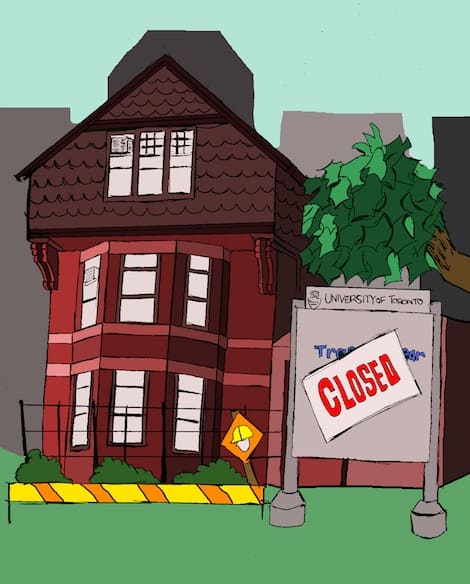In a meeting held last month, the University of Toronto’s Governing Council made the decision to move the esteemed Transitional Year Programme (TYP) to Woodsworth College — evicting the TYP from its home at 49 St. George St., which it has occupied for over forty years.

TIMOTHY LAW/THE VARSITY
Provost Cheryl Regehr’s promise that “there is no intention to end TYP,” has been well documented. However, it is difficult to believe such an assurance when the program has seen nothing but budget cuts recently memory.
The TYP has received some attention recently both from within, and from outside the U of T community as several groups have sought to prevent the program’s termination as it struggles to stay afloat amidst significant financial issues.
While the fight for funding must certainly continue, it is important to bear in mind that axing a program’s funding is not the only way to kill it. Identity loss too is a form of death. When something has been changed beyond recognition, it does die in a certain sense. Eviction can do this to a program, especially in a case like that which has befallen the TYP.
The TYP has an impressive success rate with 70 per cent of students graduating the program and enrolling as students in the Faculty of Arts & Science. This has been largely attributed to the type of atmosphere that has been created within the walls of 49 St. George St., where the program has been housed. The TYP operates within a supportive environment that has been tailored over the course of the program’s more than 40 years in existence, to fit the needs of the students who use its services.
Many TYP students have had to face tremendous challenges and relentless adversity throughout the course of their lives. Many will become the first in their community to attend university. The TYP invites their alumni back for regular visits in order to provide current students with mentors who have experienced many of the same challenges. These visits have been identified by students and staff alike as integral to the program’s success. Unfortunately, concerns have been voiced as to whether or not such visits will be able to continue after the program’s relocation, as the TYP will be forced to make do with a much smaller space.
What is perhaps even more worrying is that such a reduction in space entails that some faculty members will no longer be able to discuss confidential matters with students, as private space becomes harder to come by.
The TYP should be a source of immense pride for U of T, not something to be forced underground. Burying equal-opportunity access programs is not the way forward for U of T. This move is not just a simple, arbitrary relocation, but an injunction that poses a slew of restrictions, whose ramifications could be devastating to the future of the beloved program. For now, the TYP lives on, but for how much longer remains to be seen. There is really only one thing we can know for certain: that the type of expansion this program merits is never going to happen in a basement.
Phyllis Pearson is a fourth-year student at Victoria College studying philosophy and English.

